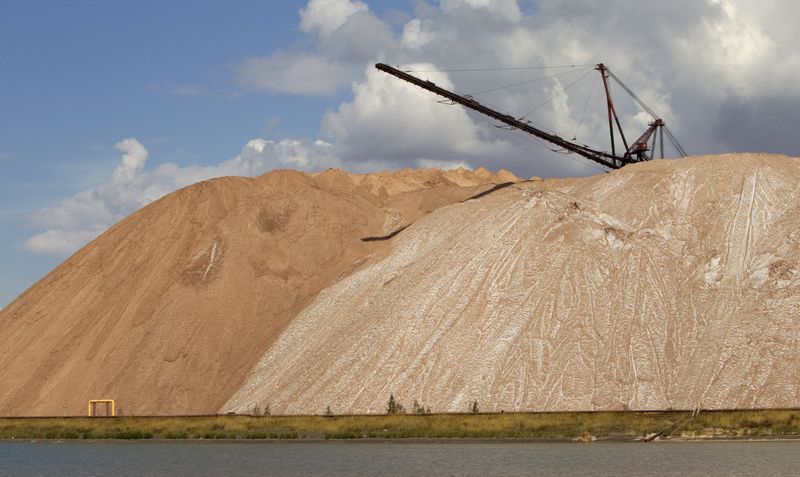MOSCOW (Reuters) - Belarus has diverted potash shipments from Lithuania's Klaipeda port to Russian ports after Vilnius decided to halt the use of its railway for Belarus exports of the commodity, Belarusian Prime Minister Roman Golovchenko said on Tuesday.
Lithuania stopped railway transit of Belarusian potash from Feb. 1. It said Minsk, which is under U.S. and European sanctions, could not use Lithuania to export the crop nutrient, which is key foreign currency earner for Belarus.
"Due to the longer delivery distance through Russia, our producers have lost a little in margins, but this will be compensated by higher global prices," Golovchenko said in a video published by the government.
He did not name the Russian ports.
Belarus used to export about 12.5 million tonnes of potash a year from the Baltic Sea port of Klaipeda.
Russia's transport ministry, Russian Railways and Russian potash producer Uralkali declined to comment. Russian ports handled 19.3 million tonnes of all types of fertilisers in 2021.

State-owned Belaruskali is the world's second largest potash producer. Washington imposed sanctions on it in 2021 and then black-listed its export arm Belarus Potash Company (BPC), part of the West's punitive measures against Belarus President Alexander Lukashenko over a crackdown on political opponents.
Washington gave BPC's clients - which include India, China and Brazil - until April 1 to wind down their business with it, fuelling concerns of a prolonged price rally in the potash market. Prices for the crop nutrient are near 10-year highs.